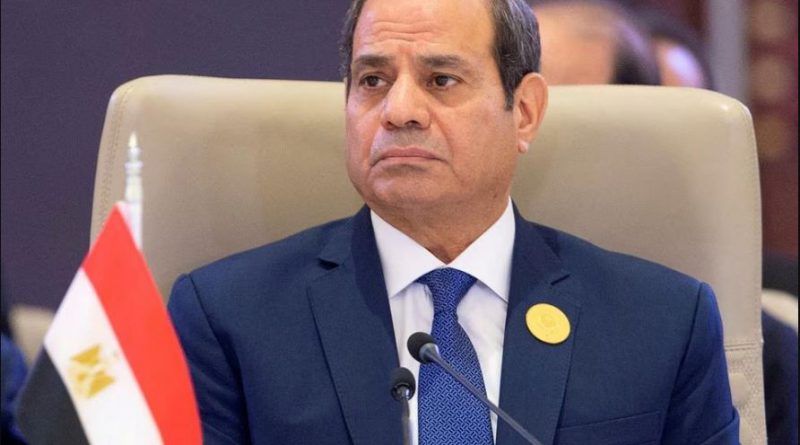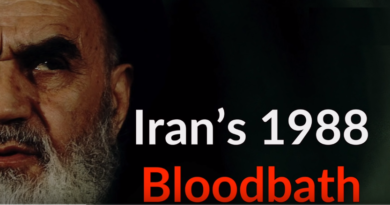Arab states say Palestinians must stay on their land as war escalates
Reuters
A wider conflagration would give the Israelis the opportunity to implement a transfer policy to expel Palestinians en masse from the West Bank.
Calls for a humanitarian corridor or an escape route for Palestinians from Gaza as a conflict between Israel and the Palestinian Islamist group Hamas has escalated have drawn a blunt reaction from Arab neighbours.
Egypt, the only Arab state to share a border with Gaza, and Jordan, which is next to the Israeli-occupied West Bank, have both warned against Palestinians being forced off their land.
It reflects deep Arab fears that Israel’s latest war with Hamas in Gaza could spark a new wave of permanent displacement from land where Palestinians want to build a future state.
“This is the cause of all causes, the cause of all Arabs,” Egyptian President Abdel Fattah al-Sisi said on Thursday. “It is important that the (Palestinian) people remain steadfast and present on their land.”
For Palestinians, the idea of leaving or being driven out of land where they want to forge a state carries echoes of the “Nakba”, or “catastrophe”, when many Palestinians fled or were forced from their homes during the 1948 war that accompanied Israel’s creation.
Some 700,000 Palestinians, half the Arab population of what was British-ruled Palestine, were dispossessed and displaced, many spilling into neighbouring Arab states where they or many of their descendants remain. Many still live in refugee camps.
Israel contests the assertion it drove Palestinians out, saying it was attacked by five Arab states after its creation.
Since Israel launched its intense bombardment of Gaza after a devastating assault by Hamas militants on Oct. 7, hundreds of thousands of Gaza’s 2.3 million residents have fled their homes, while still staying inside Gaza, a small, slither of land wedged between Israel, Egypt and the Mediterranean Sea.
‘Preventing A Spillover’
The Israeli military on Friday warned civilians of Gaza City, more than 1 million people, to relocate south within 24 hours for their own safety, an announcement that was taken as a signal that Israel could be launching a land invasion soon.
“Hold on to your homes. Hold on to your land,” was the message broadcast from mosques in Gaza, as tens of thousands of people headed south. Others vowed to stay. “Death is better than leaving,” said Mohammad, 20, outside a bombed Gaza building.
Jordan’s King Abdullah warned “against any attempt to forcibly displace Palestinians from all Palestinian territories or cause their internal displacement, calling for preventing a spillover of the crisis into neighbouring countries and the exacerbation of the refugee issue.”
The head of the 22-member Arab League, Ahmed Aboul Gheit, urgently appealed to U.N. Secretary-General Antonio Guterres to condemn “this insane Israeli effort to transfer the population”.
The United States said this week it was talking to Israel and Egypt about the idea of safe passage for Gaza civilians.
U.N. spokesman Stephane Dujarric said: “Civilians need to be protected. We do not want to see a mass exodus of Gazans.”
Israel’s ambassador to the United Nations, Gilad Erdan, said the evacuation warning was “to temporarily move (people) south … to mitigate civilian harm.”
“The U.N. should be praising Israel for these precautionary actions,” Erdan told U.N. diplomats at a Israel-hosted event with families of Israelis kidnapped by Hamas. “For years, the U.N. has put its head in the sand in the face of Hamas’s terror build-up in Gaza.”
The fate of Palestinian refugees is one of the thorniest issues in the moribund peace process. Palestinians and Arab states say a deal should include the right of those refugees and their descendants to return, something Israel has always rejected.
Some Israeli statements have fuelled Arab apprehension.
An Israeli military spokesman said on Tuesday he would advise Palestinians to “get out” through the Rafah crossing on Gaza’s southern border with Egypt. Israel’s military issued a clarification stating the crossing was at that time closed.
The Rafah crossing is the main gateway for people in Gaza to the outside world. All the other exits lead to Israel.
In Khan Younis in the south of Gaza, Mariam al-Farra, a 36-year-old mother of two, said people displaced inside the enclave were crammed together without water, power or internet links.
“People are just saying we are all going to Sinai – that we are going to be forcibly displaced,” she said. “We have nothing to do with any of this. We just want to live in peace.”
Cold Peace
Since Islamist group Hamas took control of Gaza in 2007, Egypt has helped maintain a blockade of the strip, largely sealing off its border and imposing tight controls over the passage of goods and people through Rafah.
Egypt faced an Islamist insurgency in northern Sinai that peaked after 2013 before security forces re-established control, and security sources and analysts say it wants to prevent infiltration by militants from Hamas – which shares an ideology with the Muslim Brotherhood, a group outlawed in Egypt.
Egypt says the Rafah crossing is open and they are trying to secure the delivery of humanitarian relief into Gaza, although this has been hampered by Israeli bombardments close to the border. Cairo has also indicated that the resolution of the issue through any mass exodus of Palestinians is unacceptable.
Opposition to new displacement of Palestinians runs deep in Egypt, where a peace treaty with Israel more than four decades ago secured an Israeli withdrawal from the Sinai Peninsula but never led to reconciliation on a popular level.
“Egyptian public opinion would overwhelmingly see this as a prelude to ethnic cleansing, forced displacement, basically expulsion, where it would be expected then that they just never would go back,” said H.A. Hellyer, a senior associate fellow at the Royal United Services Institute.
The conflict around Gaza has also stirred long-standing fears in Jordan, home to a large population of Palestinian refugees and their descendants, that a wider conflagration would give the Israelis the opportunity to implement a transfer policy to expel Palestinians en masse from the West Bank.
After an emergency Arab League meeting on Wednesday, Jordan’s Foreign Minister Ayman Safadi said all Arab states agreed to confront any attempt to displace Palestinians from their homeland.



